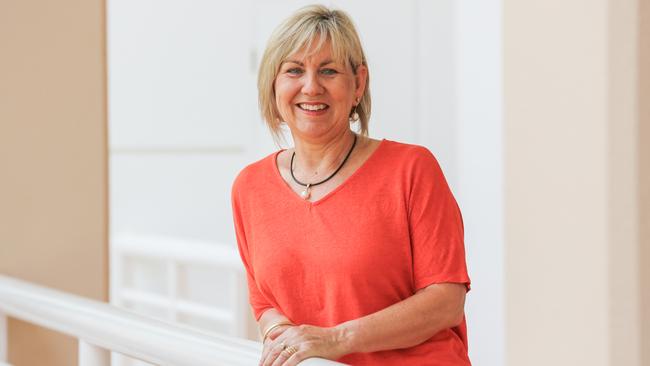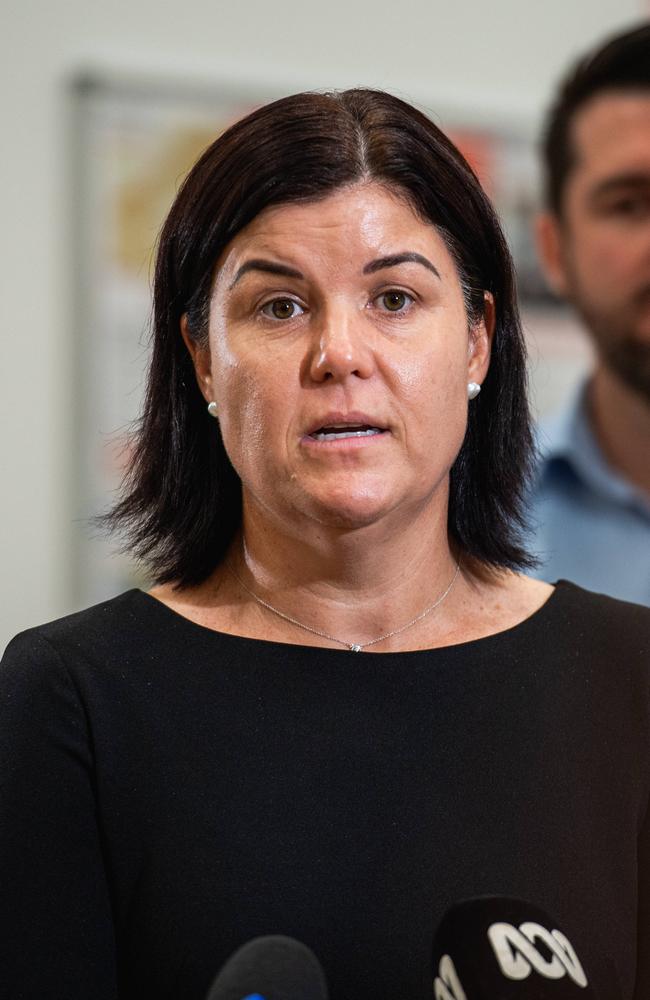Mataranka Supermarket faces permanent closure, food security at risk
A remote supermarket is facing permanent closure as a result of the NT government’s alcohol sales cap, putting food security in the region at risk.
News
Don't miss out on the headlines from News. Followed categories will be added to My News.
Food security and access to emergency supplies are on the line if the NT government does not support remote supermarkets affected by the NT’s 25 per cent alcohol sales cap.
Mataranka Supermarket owner Toni Kutschki said the only grocery store in town could be forced to close after a two-year fight to reduce the shop’s alcohol sales to 25 per cent of its total transactions.
Ms Kutschki said the third-generation family business was recently slapped with a $5184 fine – to be paid in monthly instalments of $500 – after alcohol contributed 28.22 per cent of the store’s sales in the second quarter of 2023.
She said the shop’s liquor license was also suspended for four weeks.
Ms Kutschki said she tried limiting customers to three items per day then one per day before limiting shelf stock altogether.
“There may have only been six bottles of rum on the shelves at once and once they were gone, they were gone,” she said.
“It got to a point where we were closing the bottleshop on Wednesdays.”
Ms Kutschki’s said she was tired of “fighting a silent assassin” and taking a legal gamble just to keep the doors to her shop open.
“Sometimes it’s a matter of, ‘do we sell another couple of items and risk being over 25 per cent to be able to pay our wages for the week?’,” she said.
“The government needs to know that when the Mataranka supermarket, the Borroloola supermarket, the Wagait Beach supermarket have all gone, so does the access to emergency supplies … (and) so does the food supply to that remote area.”

Katherine MLA Jo Hersey in October’s parliament sittings said small business owners like Ms Kutschki were “under threat” from the alcohol sales caps.
“To sell a carton of beer this supermarket would have to sell $180 worth of groceries,” Ms Hersey said.
She said the quarterly reporting requirements did not take into account seasonal spikes in alcohol sales, such as during the holidays and dry season.
“We know that tourists cannot get alcohol before 2pm in the closest large centre, Katherine, so they would choose to purchase it at the Mataranka Supermarket on their way to go fishing or on their way down south on the return of their holiday.”

Chief Minister and Alcohol Policy Minister Natasha Fyles said the 25 per cent cap was in place to “protect food sales”.
“The liquor licences that these supermarkets have are first focused on the sale of food items, alcohol is secondary,” Ms Fyles said.
“We know businesses might not like this model, this is why we opened the conversation around a voluntary buyback scheme of grocery store liquor licences across the Territory.
“There has been a good response to the preliminary expression of interest with about 40 per cent of licensees registered to discuss the negotiation process further.”




